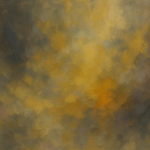Everyone talks about the pride of earning that “Dr.” title. But few speak about the ugly journey of medical school: the isolation, exhaustion, and invisible battles.
There’s never a shortage of people telling you to work hard. What they don’t tell you is that sometimes, hard work still won’t be enough. In Pakistan, over 180,000 students sit for the MDCAT each year, competing for limited seats. Globally, 70,000 take the MCAT. Amidst this, you become just another face in the crowd, one trying to be seen in an unforgiving system. I’ve watched deserving students get passed over by a system where privilege often triumphs over merit.
Then comes the harder part — surviving. Medical school in South Asia isn’t just a choice; for many, it’s a duty imposed by family and society. Parents go into debt to send their children to private colleges, hoping for prestige in return. But when stress sets in and performance falters, the same families that once pushed the dream begin to ridicule the very child they burdened. In Pakistan, this path is filled with financial strain. And for those aiming to train in the U.S., the costs of exams and applications can exceed $20,000; a number that’s simply out of reach for many.
Emotionally, this journey drains you. You’re thrown into social circles where everything is a competition, from academics to personality. I’ve been the student who didn’t feel like she belonged. I’ve worked alongside overachievers, toxic peers, gatekeepers, and people who always seemed to have it figured out. And despite everything, I felt left behind.
If you’re multitalented, it’s worse. There’s no room for hobbies. No space for art, writing, or even sleep. The influencers who romanticize medicine rarely show you this side. You retreat from friends and family. You isolate. And eventually, you burn out — deeply, silently, completely.
You also begin to struggle with confidence and self-image. While others rise, you feel like you’re drowning. Social skills, communication, even kindness — they become weapons in a race to the top. In this toxic system, the core principles of medical ethics — autonomy, beneficence, non-maleficence, and justice — feel like hollow textbook terms. You see classmates bring others down just to pull ahead, knowing that in the end, you all land in the same overcrowded job market.
I’ve seen societies reject talented students because they lacked the “right” connections. I’ve seen instructors fail students just for speaking up. I’ve felt the sting of classism, watching how students from lower-income backgrounds are treated differently. And worst of all? This injustice becomes accepted, normalized. As if it’s OK that opportunity is limited to the privileged.
What rarely gets acknowledged is the complete absence of mental health awareness. In South Asian families, you’re taught to keep quiet, push through, and never ask for help. So when you fail, academically or socially, you’re met with shame and criticism, not support. Depression is dismissed as weakness. Burnout is ignored. Success is the only currency that matters.
On top of this, many medical colleges enforce rigid attendance and have raised passing marks to unrealistic levels. These changes don’t push students to work harder — they push them toward breaking points.
Disturbingly, the statistics support this reality. A 2022 systematic review in the Journal of the Pakistan Medical Association found that nearly 9 out of 10 medical students in Pakistan experience mental distress (Azim et al., 2022).
A 2025 BMC Medical Education study also showed that burnout, depression, and anxiety are increasing globally among medical students due to academic pressures and the competitive environment.
Even more alarming, a study in F1000 Research found that 58 percent of medical students had used alcohol, 21.9 percent smoked, and 13.7 percent had used illegal drugs — driven largely by peer pressure and burnout. We don’t like to talk about substance abuse in our communities, but it exists, sometimes as the only escape when nothing else feels within control.
And this is just one of the many repercussions of the injustices medical students continue to face every day.
This issue deserves far more attention than it receives. For a profession that the world respects, the system that shapes future physicians must also respect them in return. We are human before we are doctors, and we deserve the chance to breathe.
If this cycle of discrimination and emotional exhaustion isn’t addressed, it will keep quietly consuming potential, talent, and lives.
Momeina Aslam is a medical student in Pakistan.




















![AI censorship threatens the lifeline of caregiver support [PODCAST]](https://kevinmd.com/wp-content/uploads/Design-2-190x100.jpg)

